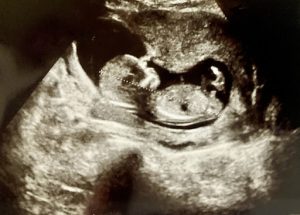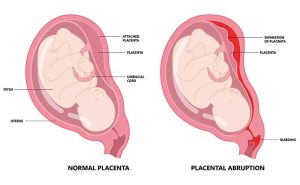Summary of this article
Constipation during pregnancy can be caused by reduced diet due to morning sickness, lack of water, changes in female hormones in the body and lack of exercise. To improve the situation, consume foods high in dietary fibre and fermented foods in the diet, and exercise, such as walking and maternity yoga. Pressure points and gentle abdominal massage are also effective.
Introduction
Many women suffer from constipation during pregnancy. With a baby in the belly and constipation symptoms, it is not uncommon for the belly to become flat and painful. Many people may suffer from ‘I just can’t get it out’.
This page explains the causes of constipation during pregnancy and how to remedy them.
Causes of constipation in pregnancy
When do constipation symptoms during pregnancy last and for how long?
Physical changes that cause constipation occur from early to late pregnancy. Let’s look at the causes of constipation in the early, middle and late stages.
Constipation in early pregnancy
Many pregnant women experience morning sickness in early pregnancy. Morning sickness can lead to reduced food intake and, in severe cases, difficulty with fluid intake.
Reduced food intake reduces the amount of stool itself, making it harder to have a bowel movement, which may progress to constipation.
Insufficient fluid intake also makes stools harder, leading to constipation.
Furthermore, changes in diet due to morning sickness can also cause constipation. If vegetables and fermented foods become difficult to eat and are in short supply, the intestinal environment can deteriorate and constipation can easily occur.
This is also a time when stress can easily build up due to physical changes such as morning sickness. Stress disturbs the autonomic nervous system and can cause constipation.
Constipation in mid-pregnancy
Pregnancy increases the production of the female hormone progesterone. This progesterone has the function of accumulating water in the body. Therefore, during mid-pregnancy, when progesterone increases, the water in the stools decreases and they become harder, making constipation more likely to occur.
Constipation in late pregnancy
In the second trimester of pregnancy, the uterus grows and puts pressure on the stomach, intestines and other internal organs. This makes it easier for stool to get stuck in the bowels, leading to constipation.
In addition, the large belly makes it difficult to move around, and this period tends to cause lack of exercise. Lack of exercise weakens the abdominal muscles, which weaken the ability to push stool out, leading to constipation.
How to improve constipation during pregnancy.
How to improve constipation through diet
①Consume foods high in fibre
Dietary fibre can be divided into two main types: soluble fibre, which is soluble in water, and insoluble fibre, which is insoluble in water. Soluble fibre increases the amount of beneficial bacteria in the gut and softens stools. Insoluble fibre, on the other hand, increases stool volume, stimulates the intestinal tract, stimulates bowel movements and helps regulate bowel movements. Make a conscious effort to actively consume these.
Soluble dietary fibre: fruits, vegetables with soft fibres (carrots, cabbage, etc.), seaweed, etc.
Insoluble dietary fibres: Root vegetables, mushrooms, vegetables with soft fibres (e.g. bamboo shoots), beans, etc.

②Consume fermented foods
Fermented foods such as yoghurt and natto contain beneficial bacteria and their intake can help improve the intestinal environment. Try to consume these regularly.
How exercise can help
Moderate exercise stimulates the bowels and relieves constipation. Start with easy exercises such as walking, maternity yoga, stretching and light exercises that can be done during pregnancy.
When doing yoga, it is more effective to use abdominal breathing when doing the poses.
There is no immediate effect, so be patient and try to incorporate it into your daily routine. Also, if your stomach feels tight, take it easy and rest.
Pressure points and massage
You can also try stimulating pressure points that are known to help with constipation. The acupressure point known as Googok is a well-known acupressure point for constipation. Gokoku is located on the back of the hand, halfway between the base of the thumb and index finger. Stimulation of this acupoint can be expected to promote peristalsis of the bowels.
It is also recommended to massage the abdomen in a gentle ‘no’ motion. However, be careful not to apply strong pressure so that the baby does not suffer.
Can medication be used?
There are laxatives that can be used during pregnancy, so if diet and exercise do not help, consult your doctor at your antenatal check-up and ask for a prescription. If you cannot wait until your antenatal check-up, you can ask your local doctor to prescribe medication after informing him or her that you are pregnant. Constipation medication can cause diarrhoea if used in large doses. If this happens, try stopping or reducing the dose.
Enemas used for constipation can cause premature birth or miscarriage. There are other medications that are unsafe, so avoid buying over-the-counter medicines on your own initiative and ask your doctor for a prescription.

Impact on NIPT
If you are taking medication for constipation, you may be concerned that this may affect NIPT.
Laxatives do not affect NIPT, so you can still undergo the test even if you are taking laxatives.
Some other medicines may affect NIPT, so if you are taking any medicines, consult the medical institution you are visiting.
Hot compresses
Warm compresses are a method of improving constipation. This method involves wringing out a towel soaked in warm water and placing it on the body, which promotes peristalsis of the intestinal tract and is effective for constipation symptoms.
This method is performed by a nurse, so if you would like to try it, consult a nurse at a maternity check-up.
Does pushing in the toilet affect the baby?
You may be concerned that your baby may come out when you push in the toilet, but if you are a pregnant woman with a normal pregnancy, the baby will not come out during early or mid-pregnancy.
On the other hand, if you are having an imminent premature labour, for example, there is a risk of the baby coming out when you push yourself on the toilet, so you should consult your doctor.
Consult a doctor if
Severe abdominal pain
If severe abdominal pain occurs during pregnancy, it may not be due to constipation. It could be a dangerous condition, such as a miscarriage, and you should see a doctor as soon as possible.
Bleeding
Bleeding during defecation can be due to excessive pushing, but it can also be a sign of miscarriage or other problems. If bleeding occurs, see a doctor as soon as possible.
Haemorrhoids
During pregnancy, haemorrhoidal symptoms are more likely to occur due to constipation and the weight of the baby causing congestion near the anus. There are haemorrhoid medicines that can be used during pregnancy, so if you experience haemorrhoid symptoms, take it easy and see a doctor.
Summary
The causes of constipation during pregnancy and how to improve it were explained. Many pregnant women may have a difficult time during pregnancy because of the various physical changes that occur.
Among these, there are several medications for constipation that can be used by pregnant women, so do not overdo it and consult your doctor.
In addition, severe abdominal pain or bleeding may be a sign of miscarriage. If this is the case, see a hospital as soon as possible.
【References】
- Ministry of Health, Labour and Welfare e-Health Net – Constipation and dietary habits
Article Editorial Supervisor

Dr Hiroshi Oka
NIPT specialist clinic, MD
Graduated from Keio University, School of Medicine
 中文
中文






















